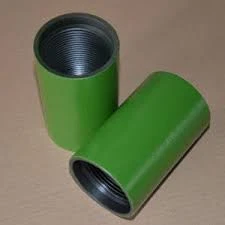- Afrikaans
- Albanian
- Amharic
- Arabic
- Armenian
- Azerbaijani
- Basque
- Belarusian
- Bengali
- Bosnian
- Bulgarian
- Catalan
- Cebuano
- Corsican
- Croatian
- Czech
- Danish
- Dutch
- English
- Esperanto
- Estonian
- Finnish
- French
- Frisian
- Galician
- Georgian
- German
- Greek
- Gujarati
- Haitian Creole
- hausa
- hawaiian
- Hebrew
- Hindi
- Miao
- Hungarian
- Icelandic
- igbo
- Indonesian
- irish
- Italian
- Japanese
- Javanese
- Kannada
- kazakh
- Khmer
- Rwandese
- Korean
- Kurdish
- Kyrgyz
- Lao
- Latin
- Latvian
- Lithuanian
- Luxembourgish
- Macedonian
- Malgashi
- Malay
- Malayalam
- Maltese
- Maori
- Marathi
- Mongolian
- Myanmar
- Nepali
- Norwegian
- Norwegian
- Occitan
- Pashto
- Persian
- Polish
- Portuguese
- Punjabi
- Romanian
- Russian
- Samoan
- Scottish Gaelic
- Serbian
- Sesotho
- Shona
- Sindhi
- Sinhala
- Slovak
- Slovenian
- Somali
- Spanish
- Sundanese
- Swahili
- Swedish
- Tagalog
- Tajik
- Tamil
- Tatar
- Telugu
- Thai
- Turkish
- Turkmen
- Ukrainian
- Urdu
- Uighur
- Uzbek
- Vietnamese
- Welsh
- Bantu
- Yiddish
- Yoruba
- Zulu
Understanding the Concept and Features of Bull Plug in Plumbing Systems
Understanding Bull Plug Definition and Applications
The term bull plug may not be familiar to everyone, but in various industrial contexts, it refers to a specific type of device used to seal or close off openings in pipes or equipment. This article explores the definition of a bull plug, its applications, and significance in different industries.
Definition of Bull Plug
A bull plug is essentially a fitting that is used to block the end of a pipe or a fitting. It can come in various shapes and sizes, tailored to the specific requirements of the piping system it is meant to serve. Typically made from materials such as metal, plastic, or rubber, the bull plug is designed to create a tight seal, preventing the escape of fluids or gases. The name bull plug is derived from its robust appearance and functionality— bull suggesting strength and durability.
Bull plugs can be threaded or non-threaded, depending on their design and the application. Threaded bull plugs are screwed into place, ensuring a secure connection that can withstand high pressure. Non-threaded variants may be designed to fit snugly into the end of a pipe or fitting, relying on friction or other locking mechanisms to maintain their position.
Applications of Bull Plugs
The applications of bull plugs are vast and diverse across various industries. Here are some key areas where these fittings are commonly used
1. Oil and Gas Industry In the oil and gas sector, bull plugs play a crucial role in the sealing of pipelines and equipment. They are essential during maintenance and repair work to prevent spills and leaks, which can pose serious environmental hazards.
2. Water and Wastewater Management Bull plugs are frequently used in water treatment facilities and sewage systems to seal off pipes during maintenance. They ensure that wastewater does not leak into surrounding areas, maintaining sanitation and safety.
bull plug definition

3. Manufacturing and Production In manufacturing plants, bull plugs are used in various machines and pipelines to halt flow during process adjustments or repairs. Their ability to create airtight or watertight seals is crucial for maintaining operational efficiency.
4. HVAC Systems Heating, ventilation, and air conditioning systems often utilize bull plugs to seal off ducts and pipes during installation or when certain components are temporarily out of service. This ensures that systems operate efficiently without losing heated or cooled air.
5. Construction During the construction and renovation of buildings, bull plugs are employed to temporarily seal pipes and other openings to prevent debris from entering the system, as well as to manage airflow and pressure during the construction process.
Importance of Bull Plugs
The importance of bull plugs transcends mere functionality; they are integral to safety and operational integrity in numerous systems. By effectively sealing off openings, bull plugs prevent potential leaks that can lead to catastrophic failures, environmental damage, and costly repairs. Their versatility allows them to be customized for specific applications, ensuring that they can accommodate a range of pressures and fluid types.
In addition to their practical applications, bull plugs symbolize the importance of ensuring system integrity across various industries. Their reliable performance under demanding conditions illustrates the engineering principles that govern industrial design and maintenance practices.
Conclusion
In conclusion, the bull plug is a vital component in many industrial settings, serving as a robust solution for sealing and securing pipe openings. With applications spanning oil and gas, water management, manufacturing, HVAC, and construction, understanding the definition and functionality of bull plugs is essential for professionals in these fields. Their ability to prevent leaks and maintain system integrity highlights the importance of quality fittings in ensuring safety and operational efficiency. As industries evolve, the role of bull plugs will undoubtedly continue to be significant in the realm of engineering and maintenance.
-
Tubing Pup Joints: Essential Components for Oil and Gas OperationsNewsJul.10,2025
-
Pup Joints: Essential Components for Reliable Drilling OperationsNewsJul.10,2025
-
Pipe Couplings: Connecting Your World EfficientlyNewsJul.10,2025
-
Mastering Oilfield Operations with Quality Tubing and CasingNewsJul.10,2025
-
High-Quality Casing Couplings for Every NeedNewsJul.10,2025
-
Boost Your Drilling Efficiency with Premium Crossover Tools & Seating NipplesNewsJul.10,2025







